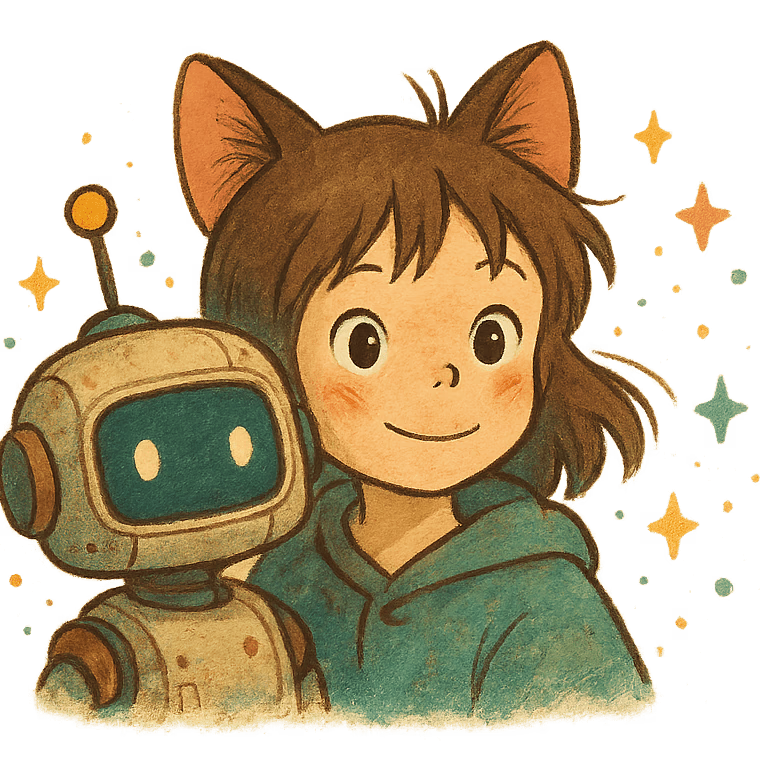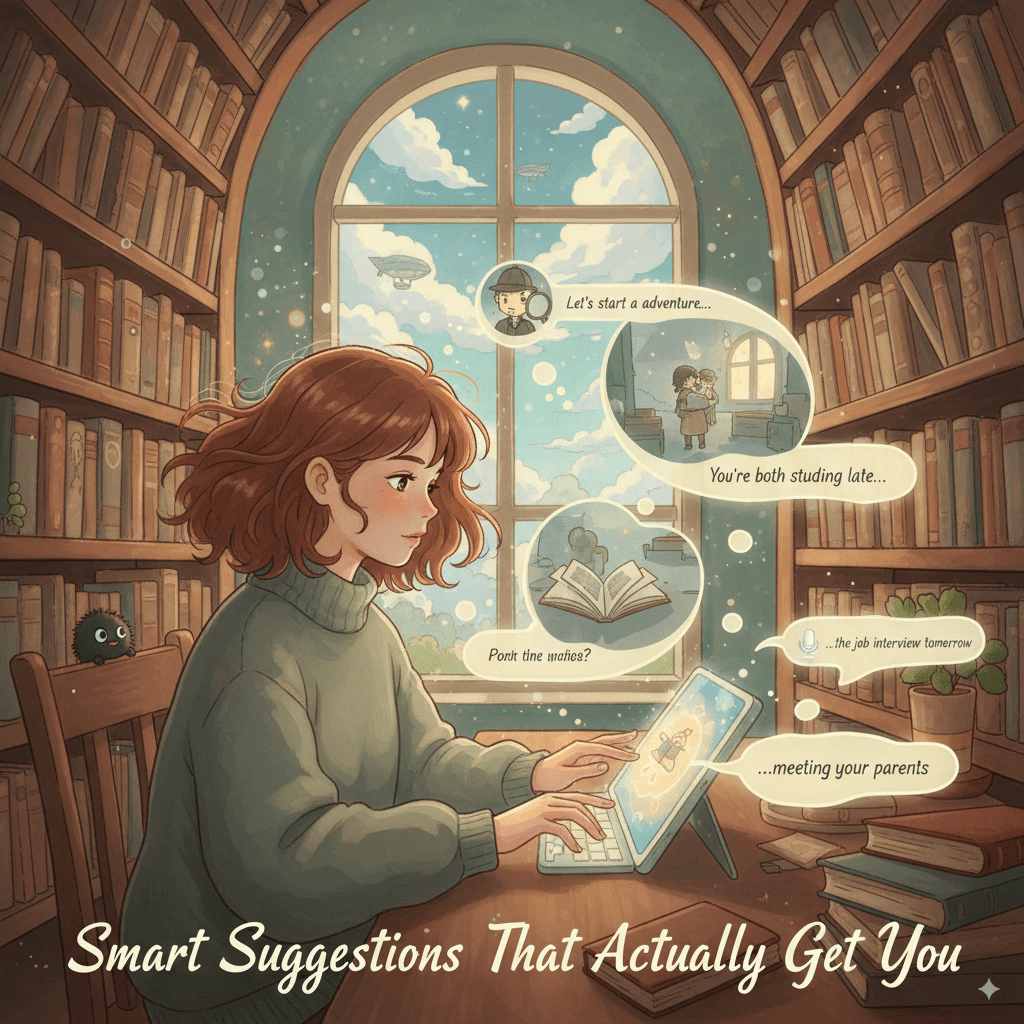Smart Suggestions That Actually Get You

Reverie Team
7/8/2025

The Problem We Noticed
Picture this: You open a chat with your AI companion, stare at the empty input box, and... nothing. Your mind goes blank. What should you say? How do you start?
We saw this happening constantly. Users would open chats, type a few words, delete them, and sometimes just close the app. The blank input box had become a barrier instead of an invitation.
But here's the twist - we also noticed power users getting frustrated when simple auto-suggestions interrupted their creative flow. They didn't want generic "How are you?" prompts when they were crafting a specific scenario.
Our Design Philosophy
Most platforms solve this with one-size-fits-all suggestions. We took a different approach: contextual intelligence.
Empty input = Scenario suggestions "Let's start a mystery adventure in Victorian London..." "You're both studying late in the library when..."
Typed input = Guided suggestions User types: "I'm feeling nervous about..." Our suggestions: "...the job interview tomorrow" / "...meeting your parents" / "...this important decision"
The magic isn't in the AI - it's in knowing when to step back and when to step forward.
What Users Actually Said
Three months after launch, our data told an interesting story:
- 73% of users now start conversations within 30 seconds (vs 2+ minutes before)
- Power users report feeling "understood" rather than "interrupted"
- New users discover roleplay scenarios they never would have thought of
But the most telling feedback came from a user named Sarah:
"I used to spend so long thinking of what to say that I'd give up. Now it feels like the app reads my mind - when I'm stuck, it gives me ideas. When I know what I want, it helps me say it better."
The Ripple Effect
This feature taught us something crucial about AI interaction design: Intelligence isn't about being smart, it's about being appropriate.
This philosophy now influences every feature we build:
- Our fork conversation tool appears only when multiple paths make sense
- Group chat speaker selection happens naturally, not forcefully
- Memory recall feels organic, not like a database dump
What's Next
We're exploring how this contextual awareness can extend beyond text - imagine voice tone suggestions that match your mood, or visual scene prompts that complement your conversation style.
The goal remains the same: technology that feels like intuition, features that enhance rather than interrupt the human experience.
What's your favorite "invisible" UX feature? Share your thoughts on our Discord community.
Ready to Experience Dynamic AI Conversations?
Join thousands of users already exploring infinite personality and engaging interactions on Reverie.